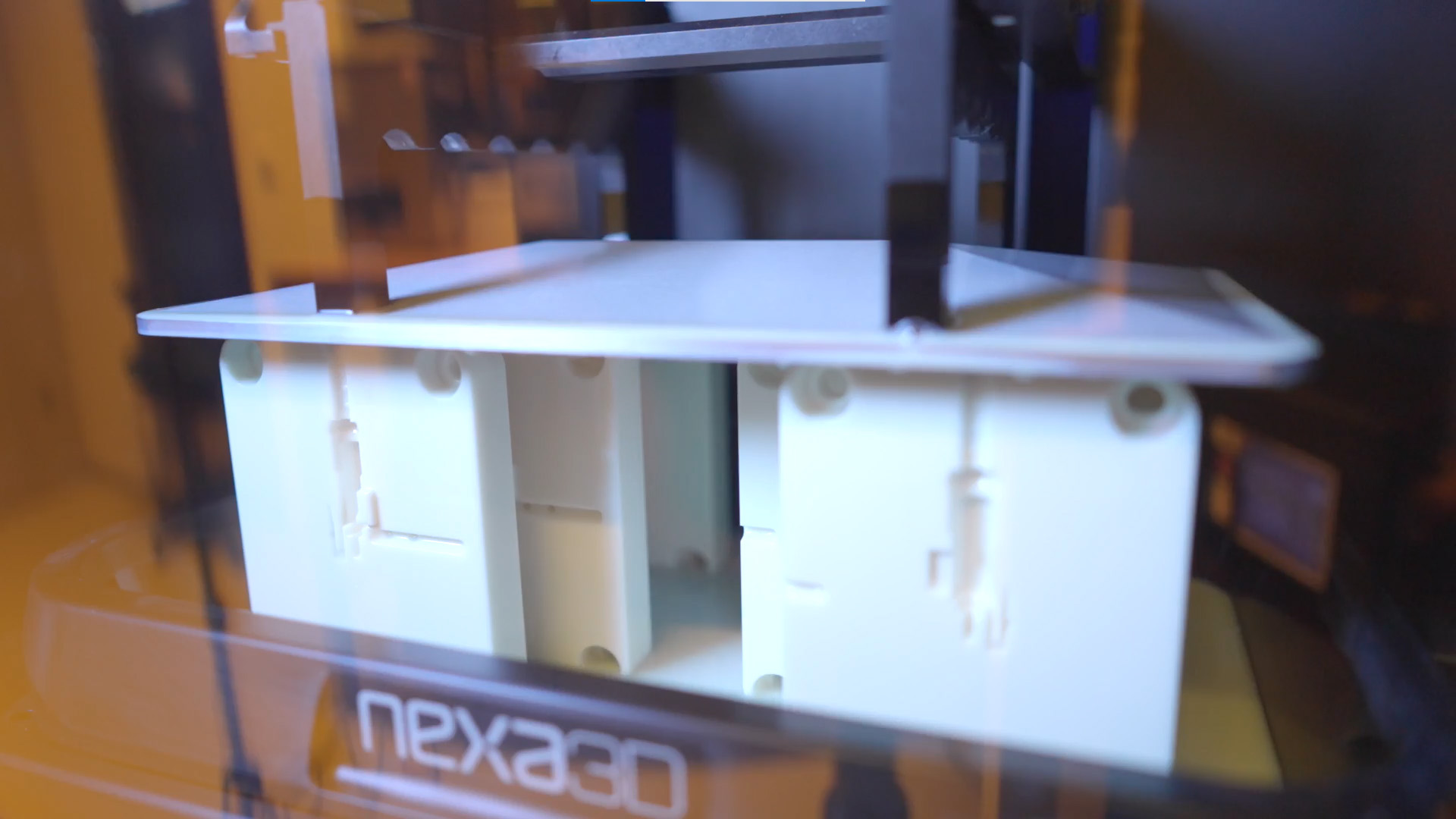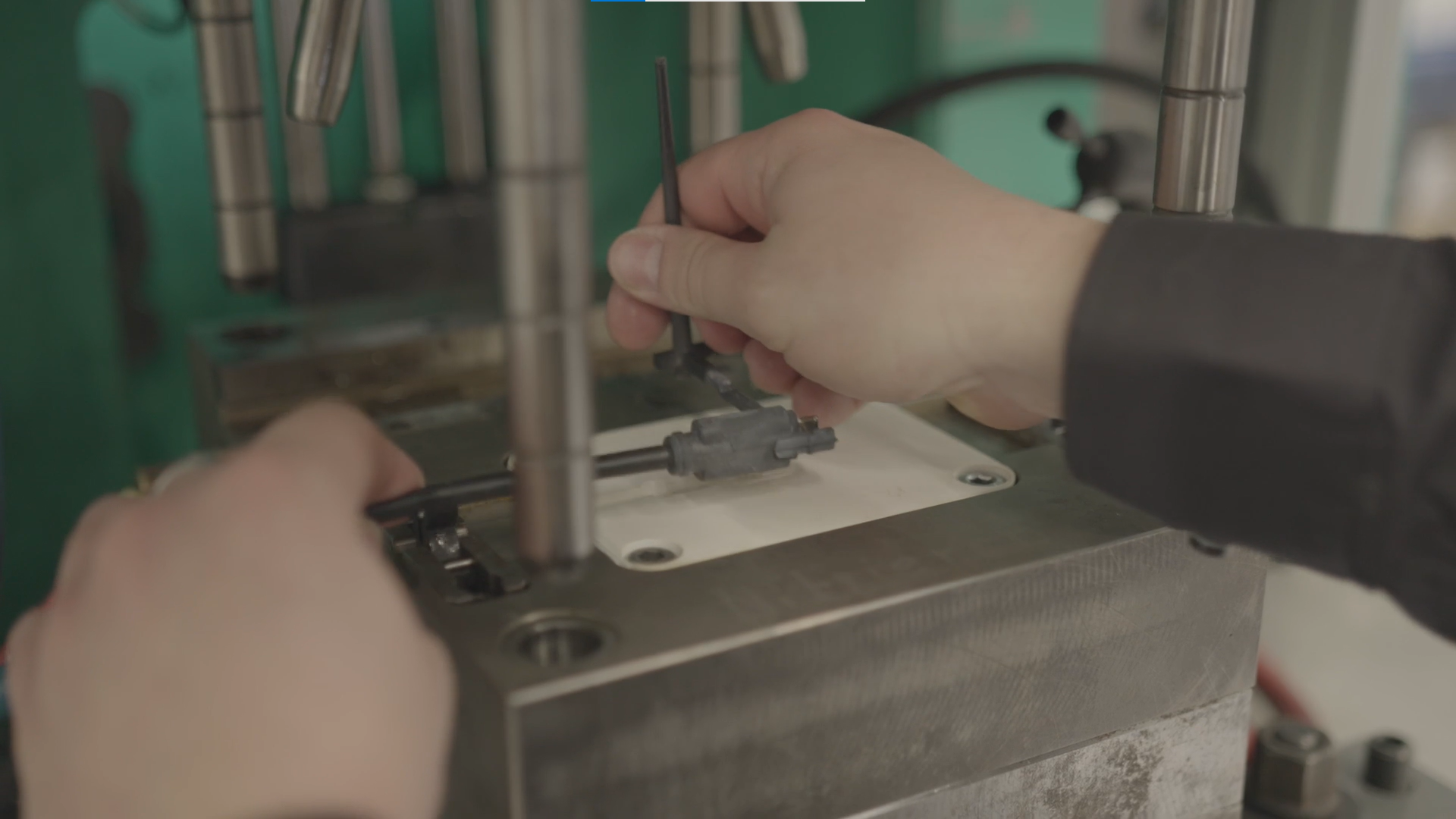Share this page
MD ELEKTRONIK is an automotive supplier with over 30 years of experience in the industry. They specialize in customizing cables and electronic modules for data transmission in vehicles. MD ELEKTRONIK’s products are integrated into more than 350 car models engineered by more than 60 OEMs globally. With a total of over 6,000 employees at locations in Germany, the Czech Republic, Bulgaria, China, Mexico and the USA, MD ELEKTRONIK can offer support to its customers on all continents.
Watch how MD ELEKTRONIK is using their Nexa3D printer and Ultracur3D® RG 3280 to manufacture rapid tools for injection overmolded prototypes.
“Nowadays it is required to have a fast solution for new data connectors. So, we use Additive Manufacturing technologies in order to provide early samples for our customers and the engineering labs, which brings us into a better position than our competitors”
— Johannes Trä, Director Development, MD ELEKTRONIK
MD ELEKTORNIK provides real-world solutions through the production of highly functional data transmission cables to their customers in the automotive industry. The initial problem that was faced by automotive suppliers was that simulations often fail to accurately predict the behavior of flexible overmolded parts. Through their collaboration with BASF Forward AM and ProductionToGo, MD ELEKTRONIK utilized Ultracur3D® RG 3280 to produce 3D printed mold inserts which resulted in a reduced number of mold iterations, lowered production costs and sped up time to market for new products.
Eight mold components (four full molds) 3D printed in just two hours with the Nexa3D NXE 400Pro.

The prototypes required must be overmolded in series material and include functional electronics/contacts for data transmission cables. After comparing several different materials, it was concluded that Ultracur3D® RG 3280 was the number one choice to meet the project requirements. It provides excellent printability on the 405nm by Nexa3D along with high imaging accuracy and could produce eight mold components in two hours.
Ultracur3D® RG 3280 creates molds with high strength, stiffness, thermal stability and pressure resistance. Within 90 minutes, more than 60 parts were produced with little to no wear on the mold inserts. With the development speed accelerated, MD ELEKTRONIK was able to utilize this material to reduce technical risks, making it a technology that will now be the standard in their rapid prototyping portfolio.
The overmolded data cable is ready to be tested for the final design validation of the mold and end component.

By utilizing this innovative material along with Additive Manufacturing technologies, MD ELEKTRONIK could quickly produce the overmoldings needed allowing for a rapid prototyping process of functional electronic overmolded components from 3D imaging to a finished product in as little as three to four days. They were also able to reduce costs and save over 5000€ through this new process.
“The technology achieved the requirements for early prototype production and enabled us to check our product geometry and discover potential failures before we invested in an expensive mold. This meant we could eliminate production defects in the steel mold, therefore reducing the number of correction/optimization cycles.”
— Markus Kaaserer, Expert Techno Polymers, MD ELEKTRONIK